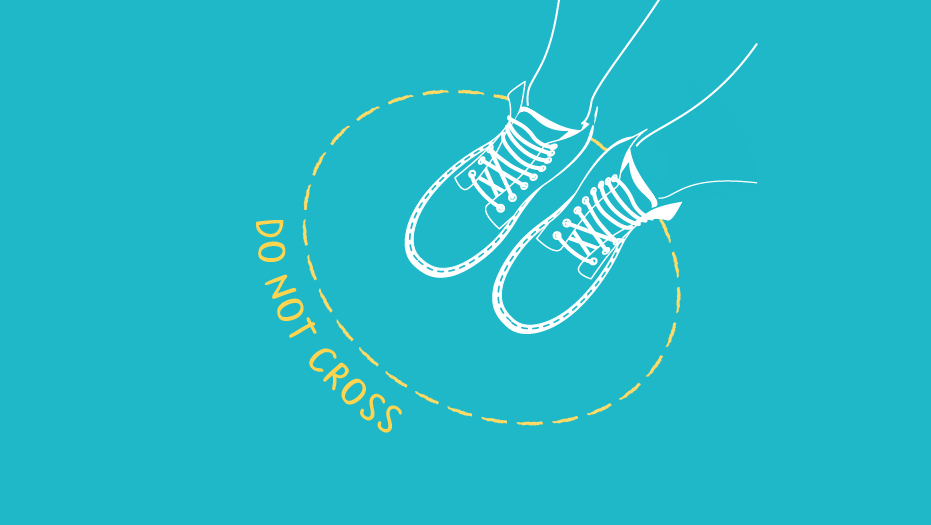 26th January 2021
26th January 2021
Building Good Boundaries Around Our Lives
Boundaries are like a fence around our property, says Just a Thought clinical lead Anna Elders. ‘Imagine you live on a corner section. If you don’t have a fence, some people will cut corners, drop litter and damage your garden. Once you put up a fence, only people you invite can come in, and you can fully relax and be yourself.’
Boundaries—whether good or bad—affect almost every area of life.
If your work culture expects you to stay late every night, your working life will ‘trample on’ your personal life. If your partner speaks to you disrespectfully, they are violating your value as a person.
Perhaps our first boundary is our skin, which literally separates us from others. If that boundary is not respected as a child, it may be difficult for us to set boundaries as adults, according to the classic book Boundaries by Dr Henry Cloud and John Townsend.
‘Good boundaries help us define who we are, what we value and what we need in life to maintain balance,’ says Anna. ‘Boundaries help us to establish healthy parameters to live by. Whether this be around our substance use, our working lives, our bodies, our money or our relationships.’
How do we set good boundaries?
Boundaries begin with ourselves. ‘Our ability to set healthy boundaries relies on our own sense of self-worth, as much as it does our ability to have healthy relationships with others. When we value ourselves, we tend to also value and protect our resources like our time, money and body,’ says Anna. ‘This requires a level of self-awareness—listening to that sense of discomfort, as well as our physical symptoms and emotions.’
For example, if we are on a budgetabut we keep overspending, listening to that uncomfortable feeling will help us begin to respect our own boundary.
In relationships, the best tool we have is words. It may sound obvious, but boundaries need to be communicated. One of the most powerful words we can use is ‘no’.
‘We need to communicate what we are comfortable with and need from others, in order to feel secure and safe,’ says Anna. ‘This may mean having courageous conversations—clearly and simply expressing what we need to redress the balance.’
When we value ourselves, we tend to also value and protect our resources like our time, money and body,’
Once you’ve decided that your value is more important than your fears and insecurities, you will be more at ease communicating your boundaries.
For example, once you decide your personal time is more important to you than unrealistic expectations at work, you’ll be able to have that courageous conversation with your boss about not always about working late.
Good boundaries will also help you feel comfortable with your decision, no matter how others react. It’s worth noting that other people’s emotions are not part of your ‘property’. You’re only responsible for your emotions – that doesn’t mean you can’t feel empathy, it means you’re not controlled by other people’s reactions.
‘If we feel responsible for other people’s feelings, we can no longer make decisions based on what is right; we will make decisions based on how others feel about our choices,’ says Dr Cloud.
What if others cross our boundaries?
‘We need to be able to identify and put in place consequences if boundaries continue to be crossed,’ says Anna. ‘Like with children, following through on consequences helps others learn our boundaries and respect them.’
For example, if a partner speaks to you disrespectfully, you may communicate a consequence like, ‘If you continue to talk to me like that, I will leave the house or ask you to leave.’
You may need to tell your critical parent that, ‘I will no longer visit you if you continue to put me down when I am around.’
Psychologist Liya Panayotova suggests writing down the boundaries you want to put in place, and consequences if they are not respected. Then practise setting those boundaries by saying them out loud. ‘Don’t expect to make drastic changes overnight, but do focus on making and practising small changes. Your self-esteem and self-respect will thank you for it,’ she says.
